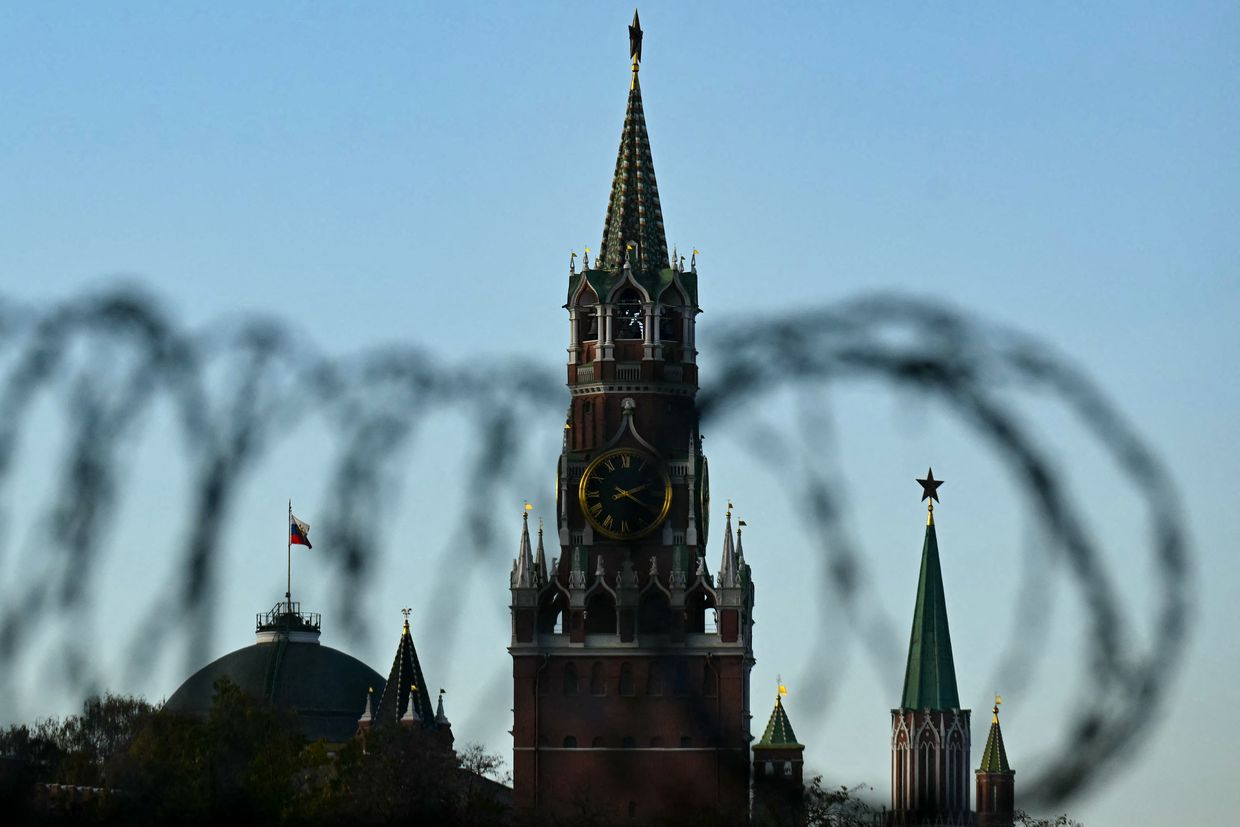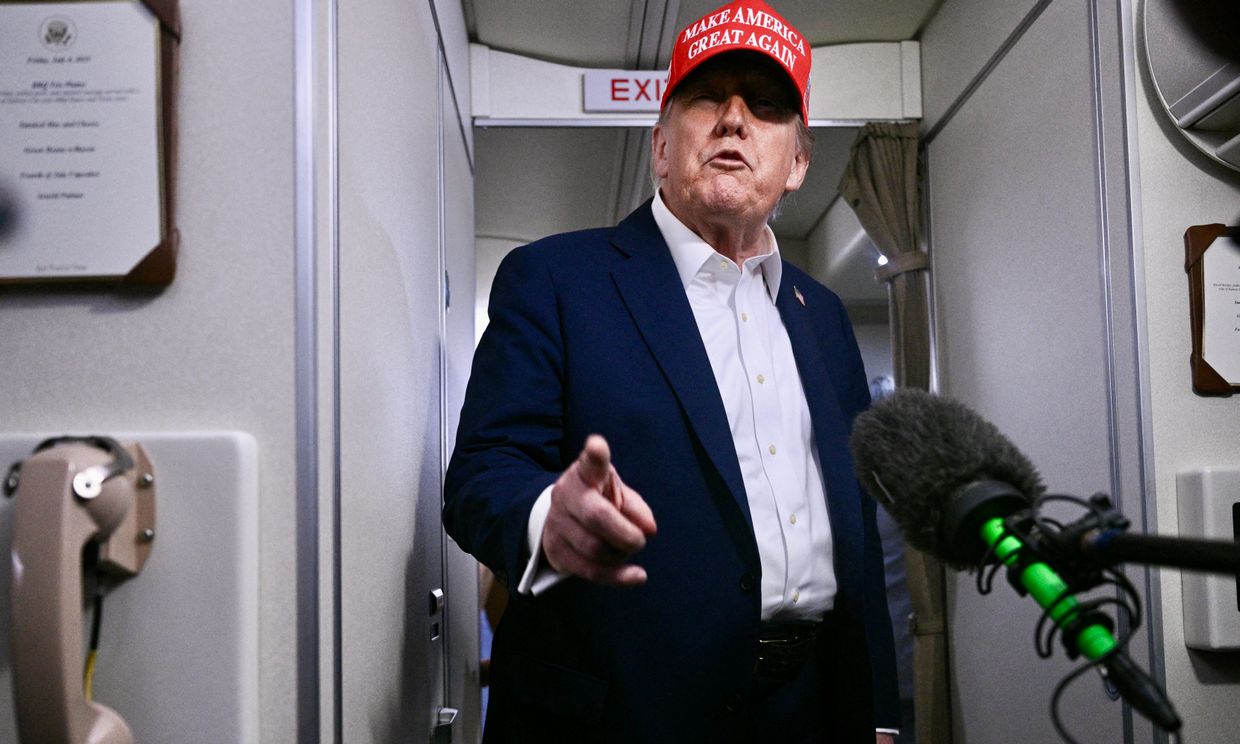
Russia's economic system, which defied preliminary sanctions and noticed progress propelled by large army spending and sturdy oil exports, is now displaying important indicators of a downturn.
Latest financial indicators are flashing pink, with manufacturing exercise declining, shopper spending tightening, and inflation remaining stubbornly excessive, straining the nationwide funds, the Wall Road Journal (WSJ) reported on July 4.
Russian officers are brazenly acknowledging the dangers of a recession. Economic system Minister Maxim Reshetnikov warned final month that Russia was on the "verge of a recession," whereas Finance Minister Anton Siluanov described the scenario as a "excellent storm." Corporations, from agricultural equipment producers to furnishings makers, are lowering output. The central financial institution introduced on July 3 it could debate reducing its benchmark rate of interest later this month, following a discount in June.
Whereas analysts counsel this financial sputtering is unlikely to instantly alter President Vladimir Putin’s struggle goals—as his deal with "neutering Ukraine" overrides broader financial issues—it exposes the bounds of his struggle economic system.
The slowdown signifies that Western sanctions, although not a knockout blow, are more and more taking a toll. If sanctions intensify additional or world oil costs fall, Russia’s economic system may face extra extreme instability. This downturn undermines Putin's strategic wager that Russia can financially outlast Ukraine and its Western allies, suggesting Moscow might wrestle to finance the struggle indefinitely.
 The Kyiv IndependentTim Zadorozhnyy
The Kyiv IndependentTim Zadorozhnyy
Specialists warn that Russia's financial progress mannequin, overly reliant on army spending, is unsustainable and necessitates a contraction of civilian financial capacities to unlock staff for the struggle machine, which isn’t a viable long-term technique. Putin lately dismissed ideas that the struggle is stifling the economic system, echoing Mark Twain by stating stories of its loss of life "are vastly exaggerated." Nevertheless, he additionally cautioned {that a} recession or stagflation "shouldn’t be allowed beneath any circumstances."
After a quick recession in 2022, army spending, which accounts for over 6% of gross home product this yr (the best since Soviet occasions) and roughly 40% of complete authorities spending, had propped up Russia’s economic system and blunted the affect of Western sanctions. Russia’s capacity to reroute oil exports to China and Beijing’s assist with electronics and equipment supplied extra financial stimulus. This created an financial paradox: essentially the most sanctioned main economic system was, for a interval, rising sooner than many superior economies.
Nevertheless, this army spending "sugar rush" fueled runaway inflation, compelling the central financial institution to boost rates of interest to a document 21% to attempt to tame it. Greater rates of interest elevated borrowing prices for companies, curbing funding, enlargement plans, and squeezing income. The financial comedown has already begun.
Official information exhibits Russian GDP progress slowed to 1.4% within the first quarter in comparison with a yr earlier, down considerably from 4.5% within the fourth quarter of 2024. S&P International’s buying managers’ index indicated Russia’s manufacturing sector contracted at its sharpest charge in over three years in June, and new automobile gross sales dropped almost 30% year-over-year in June.
Companies throughout Russia are feeling the results, in line with the WSJ. Rostselmash, the nation’s largest producer of agricultural equipment, introduced in Could it could minimize manufacturing and funding, and pull ahead obligatory annual go away for its 15,000 staff as a result of a scarcity of demand. In Siberia, electrical energy grid operator Rosseti Sibir acknowledged it was on the verge of chapter as a result of excessive debt, halting investments and proposing tariff hikes for industrial customers.
Whereas some analysts argue the Russian banking system stays steady, others warn of accelerating instability. A latest report by the Washington, D.C.-based Heart for Strategic and Worldwide Research (CSIS) highlighted dangers from a authorities determination to regulate war-related lending at main Russian banks. The state may direct banks to supply preferential loans, doubtlessly forcing the federal government to soak up losses if excessive rates of interest stop corporations from assembly obligations.
The Moscow-based Heart for Macroeconomic Evaluation and Quick-Time period Forecasting additionally assessed in Could that the chance of a protracted systemic banking disaster in 2026 was "reasonable" and rising.
These financial challenges intensify strain on the Kremlin by lowering its monetary capability to fund its struggle in Ukraine. The federal government has operated with a funds deficit all through the struggle and tasks this may proceed for at the very least two extra years. This fiscal pressure may present a gap for Western nations to implement extra highly effective sanctions.
Falling oil costs current one other important threat for Russia, as power gross sales account for a few third of its funds revenues. The value of Russian crude has constantly remained under the extent assumed on this yr’s funds, and Russia’s oil-and-gas income in June fell to its lowest stage since January 2023, in line with Finance Ministry information.
 The Kyiv IndependentTim Zadorozhnyy
The Kyiv IndependentTim Zadorozhnyy
